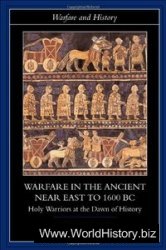Julius Caesar is perhaps the best known of all the Romans, his name transmitted into later European history as Kaiser and Tsar and incorporated into the western calendar (July), with his assassination remaining one of the most vivid folk memories of European culture. He had been born in 100 bc to a family which was patrician in origin (and actually claimed a divine founder, Venus) but at the time of his birth not a distinguished nor a rich one. He had had to make his own way and showed no hesitation in doing so. He was talented, ambitious, and a particularly fine speaker (‘the most eloquent of the Romans, as Cicero generously described him). One of his finest qualities was a magnanimity towards those he had defeated, a rare trait among commanders of the time. (A full, well-written biography is by Adrian Goldsworthy, Caesar: Life of a Colossus, New Haven and London, 2006.)
What marked Caesar out from his many rival candidates for office was his consistent use of the cause of the populares in support of his ambitions. In 69 he made a public declaration of his commitment to the cause of the people by delivering the funeral oration at the death of his aunt, the widow of their hero Marius, and when he was elected aedile in 65 he restored the trophies of Marius that Sulla had removed from the Capitoline Hill. His popularity was consolidated by massive spending, and it paid off in 63 when he was elected pontifex maximus, chief priest, a post of great dignity held for life and traditionally reserved for former consuls. (The importance of priesthoods had risen and they were now seen as one of the most prestigious forms of aristocratic attainment.) It was an extraordinary achievement for such a comparatively young man. It was followed in 62 by his election as a praetor.
Caesar’s electioneering had left him heavily in debt. His best hope now was a command overseas, and one, as governor of Further Spain, was assigned to him in the ballot through which provinces were allocated. In order to escape his creditors Caesar had to have his debts underwritten by Crassus, who had become a specialist in the business of buying political support through loans, before he could leave Rome. Once in Spain Caesar had few difficulties in engineering a campaign that took him beyond the western border of his province as far as the Atlantic coast. It was his first taste of successful generalship and as a victorious commander he was entitled to most of the plunder. He returned home with enough wealth to finance his next ambition. This was to become one of the consuls for 59. By now the optimates were becoming wary of his ambitions and the elections were bitterly contested. However, there was no stopping Caesar now that he was backed by money and fame, and the most the optimates could do was to have their own candidate, Bibulus, elected as Caesar’s fellow consul.




 World History
World History









